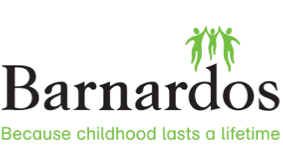Tuesday March 9, 2021: Barnardos CEO Suzanne Connolly has said that Barnardos is growing increasingly concerned about the wellbeing and future of children and families as we reach the year anniversary of covid-19 restrictions this week. As part of a new campaign launched this week, Barnardos is looking at how a year living with covid-19 has affected families and children the organisation works with.
Last year Barnardos experienced a 21% increase in referrals to intensive family support services.
According to Barnardos CEO, Suzanne Connolly, “this pandemic has put a toll on all of us. But, for children and families who were already living in significantly challenging environments, covid-19 has pushed many to the edge. We saw the cracks appear in early summer with additional financial pressures due to job loses, and closures of essential supports and services. As the year progressed, these cracks deepened.”
Generally, families that Barnardos work with have often faced difficult challenges or living environments due to mental health issues, substance mis-use or domestic violence. However, many of the respondents – which came to over 100 – conveyed that the pressures of the last year has meant, as one respondent commented, that “we feel like we are ‘holding’ families together”.
Mental Health and Anxiety
Overall, staff concerns for children were far ranging. While children across the country are missing childhood milestones, many of those that Barnardos work with often face harsher realities. Nearly 25% of frontline workers reported that due to the impact of covid-19 and restrictions, most or all children that they were working with were experiencing new or increased occurrence of mental health issues. Similarly, 35% report that most or all children that are engaged with services are experiencing higher levels of anxiety. According to one project worker, “Children are feeling very disconnected and anxious. Parents feel they have no resources left. Everyone has expressed that the third lockdown has been much worse and is impacting the mental wellbeing of the family”. Nearly one in three respondents (29%) felt that all, or many, of the children they worked with were showing signs of withdrawing from their everyday lives. According to one respondent, “the children and young people I work with have gone quiet, they’ve lost their sparkle.”
School Closures
Nearly 30% of frontline workers report that most or all children that they work with have not been able to engage whatsoever with remote learning.
According to Ms. Connolly “many children grow up in challenging home environments – they might not have access to devices or internet, or children do not have the support of an adult to help them log in or complete their exercises. Remote learning has further alienated many children. Also, school is not only where they learn in person, it is somewhere they can escape to.
“Often addiction or mental health issues can impact on a parent’s ability to support children’s home learning. Furthermore, many of these parents may not have the educational attainment levels themselves to support their children’s learning. It is a very difficult situation for a parent and not surprising that over 73% of our frontline workers surveyed highlighted an increase in parental stress directly as a result of pressures to home school children as one of the top concerns for parents they are working with.”
One respondent added that, “many of the teenagers we work with are finding it very difficult to get out of bed or engage in any online learning. The lockdown has undoubtedly impacted on their self-esteem, feelings or self worth, general motivation or ability to navigate peer friendships.”
Challenges associated with homeschooling, remote learning and prolonged school closures have led to an increased concern that young people will not re-engage with school, and levels of school refusal will increase. Nearly 30% of frontline workers believe that many or all the young people they work with are at an increased risk of dis-engaging with the school system.
According to Ms. Connolly, “Dis-engaging from school has serious lifelong implications. Recovery plans need to recognise that while supports need to be in place to make up for lost learning and supporting children’s social and developmental well-being, they must also reach out to vulnerable children and young people who may already have fallen outside the school network where many of these programmes would traditionally be rolled out through.”
Increased Financial Pressures
More than 30% reported that many or all families they work with are experiencing difficulties in providing for basic needs including heating, food and items such as nappies. “The economic impact of this pandemic has been huge for families, especially those who were just getting by”, says Ms. Connolly. “We have had so many requests for basic supports and thankfully, throughout the year we have had tremendous support from the public. However, it is next year and the following year where we expect to see huge strains on the provision of services in the sector. As the economic reality of a global pandemic reaches pockets across the country, it is imperative that planning and resources are put in place now, to plan for the inevitability of the coming years and that the needs of children are front and foremost of this planning.”
END
Notes to Editor:
Survey information: The frontline staff survey took place the last week of February 2021. In total, 110 Barnardos staff who work in frontline services providing supports responded to the survey.
To find out more and support the new Barnardos campaign see www.barnardos.ie/oneyearon
Read Michael’s story here
Read Sheila and her family’s story here
For more information for press and media please contact Barnardos Press Office:
Tel: 01 7080442 / 086 0445966
